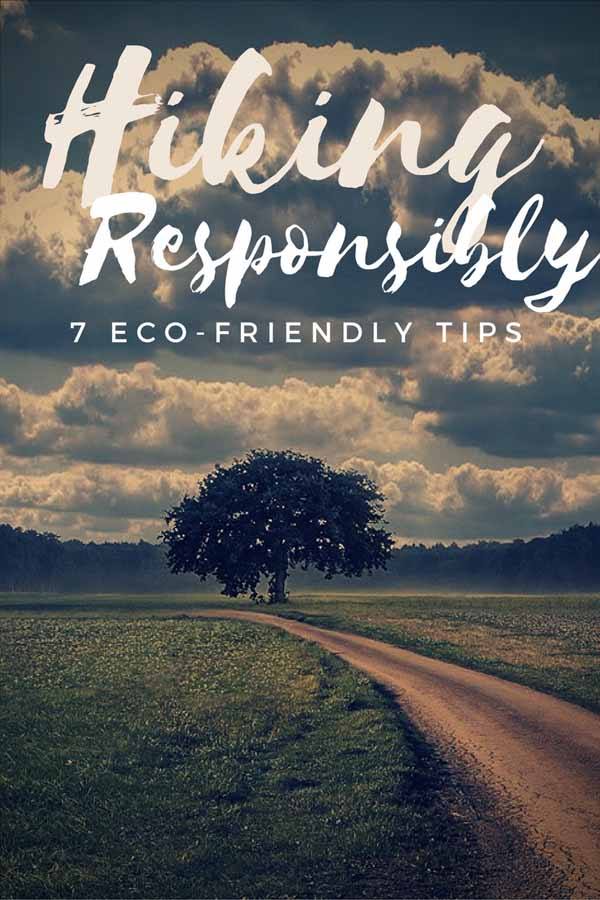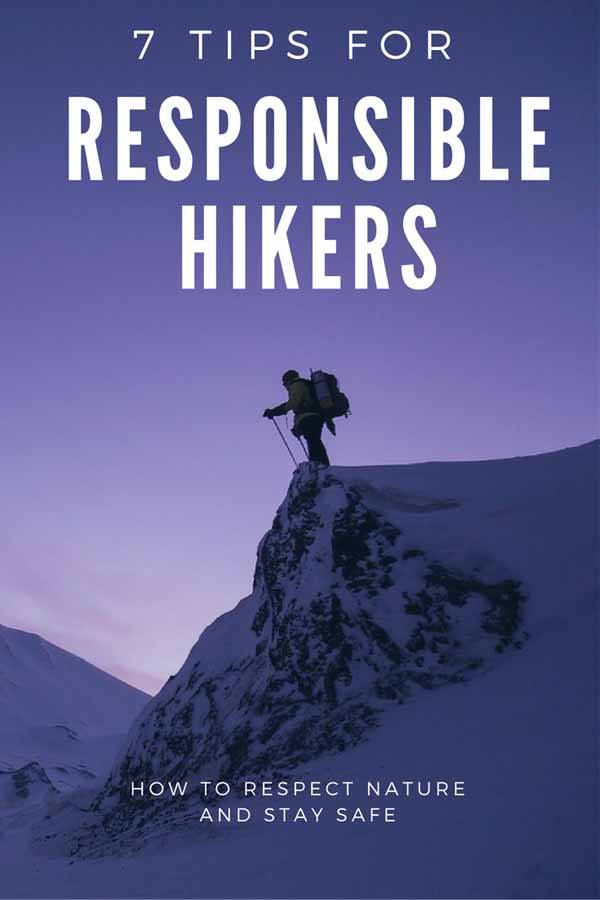Welcome to our responsible hiking tips! There are two things we really love when it comes to travel – hiking and ecotourism. Every time we travel, we aim to combine the two – here we tell you how to do it!
Anything we do in our daily lives leaves a carbon footprint behind – the food we eat, the rubbish we consume, even our very own existence leaves a trace on the planet. When it comes to travel, we all know that carbon-neutral travel is a myth. However, as responsible travellers, we can do our best to make sure that we try to respect the environment as much as possible when we travel.
Fly less, hike more – this is a good way to start. Long-distance hiking or cycling is definitely the most eco-friendly way to travel, while we all know that flying is bad for the planet. Yet, it is when we are immersed in nature that we really need to be mindful of our behaviour.
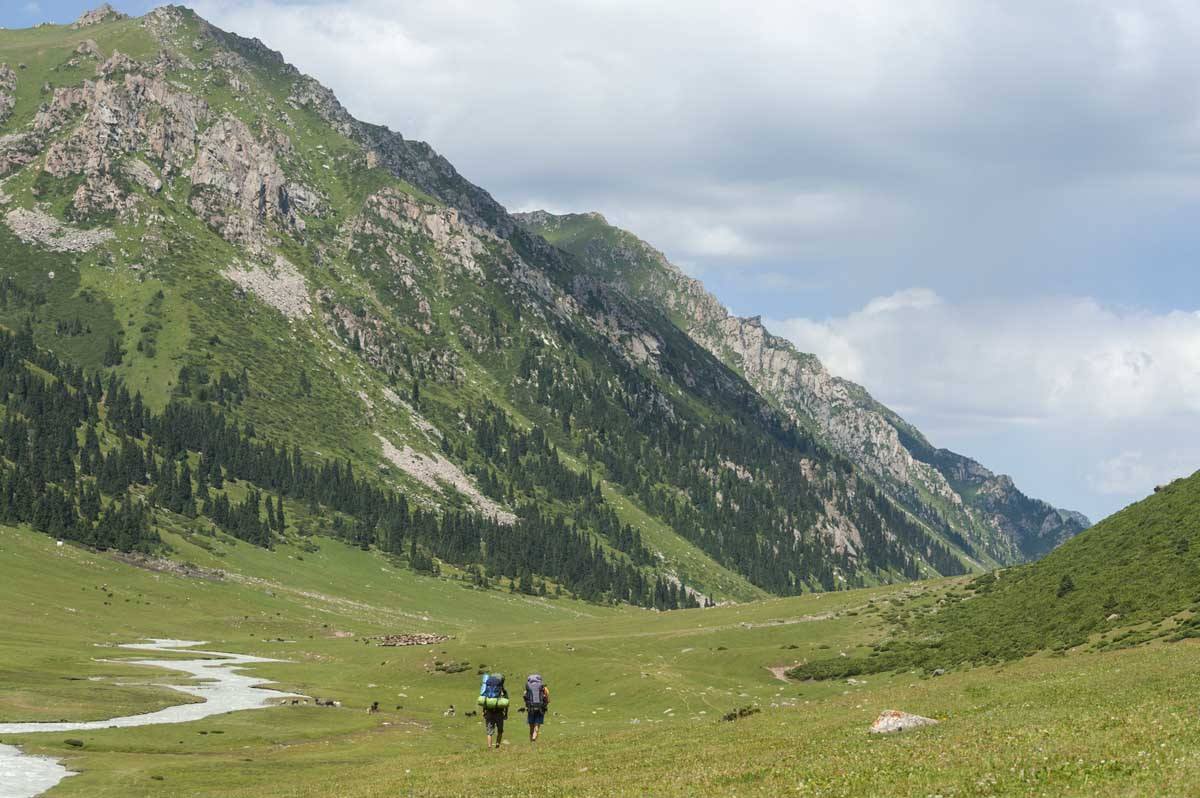
Hiking is becoming more and more popular every year, increasing the influx of visitors to once-remote places. As a result, we need to be aware of the toll that the mere presence of people has on the environment, and make sure we behave in a way that minimises that impact.
This article about how Instagram is destroying some of Tasmania’s natural gems explains the potential damage that a large influx of hikers creates very clearly.
So, what shall we do? Forget about hiking, since all it does is causing destruction? No, we just need to keep these responsible hiking tips in mind, and remember old adage in mind – you know which one I mean, the one about pictures and footprints.
Responsible Hiking – 7 Useful Tips
1) Stick to the Paths

This is really, really important. If your hike follows a marked trail, please try not to stray from it too much. There are two main reasons – the first and foremost is safety. If you’re hiking in the mountains, the weather takes a turn for the worst and visibility drops suddenly, you may find yourself on the edge of a cliff. All is take is one step off the path to plunge into oblivion – I know of at least three people that died this way in the Alps.
The second reason is respecting nature. The Tasmania post I linked above explained how moss and ferns in once-pristine locations were damaged after being trampled underfoot by hordes of hikers after a few viral Instagram posts. Straying off the path to get a better vantage point may sound harmless, but what if a thousand people did the same thing after you?
2) Don’t Litter

Sadly, we keep coming across rubbish on our long-distance hikes. When we recently hiked in Kyrgyzstan we did our best to remove at least some of the plastic bottles and bags we found on the path – but when you’re hiking for four days over 3500 meters above sea level, there’s only so much you can carry.
We always take the rubbish we create with us . Naturally, that includes all plastic wrappers and any kind of leftover food, except fruit peelings. When going to the toilet in the wild, we bury our waste, including (biodegradable) toilet paper. If our party includes smokers, we encourage them to carry their cigarette butts – this is very important, as a single cigarette butt can be a real fire hazard.
3) Light Fires Responsibly
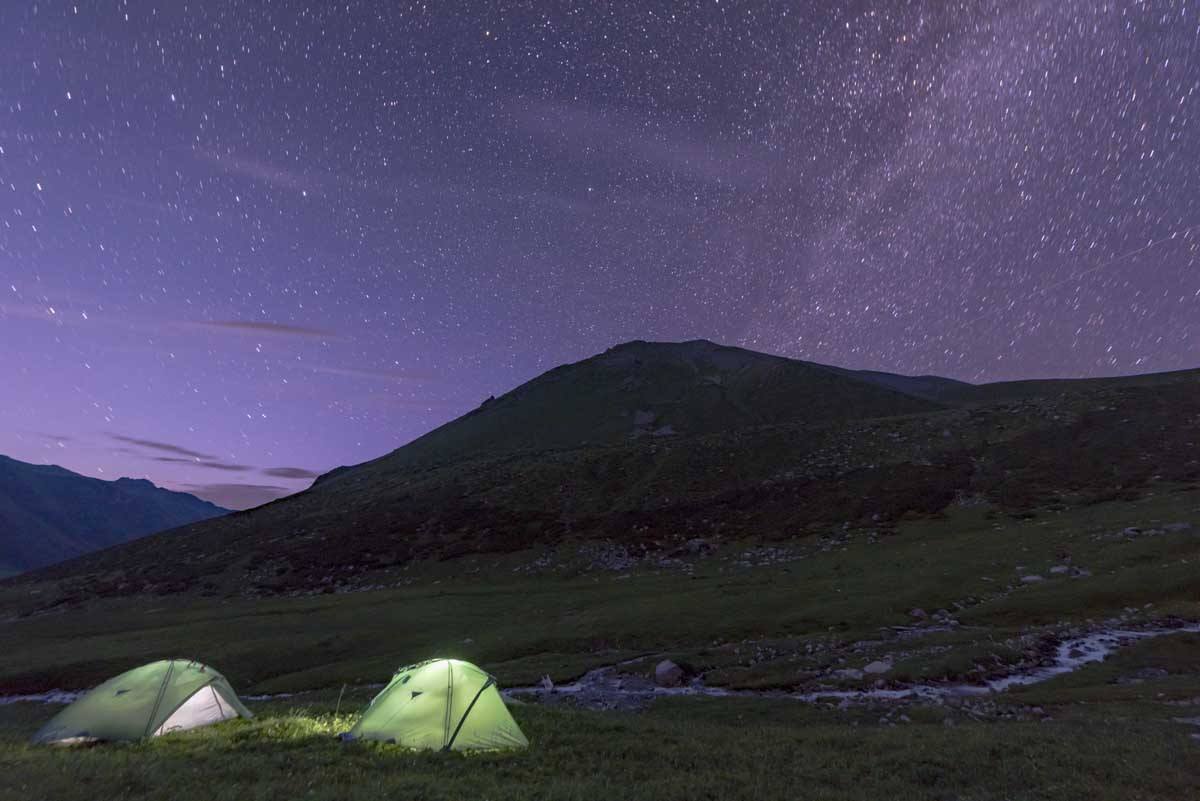
Having said that, remember to be responsible when it comes to lighting a fire during your hike. If you’re spending the night camping in the wild, there’s nothing more magical than sitting around a bonfire under a starry sky – except that if you don’t take proper care of your bonfire, the entire forest may come ablaze very easily.
Fire warnings are there for a reason – to be respected. If you’re travelling somewhere very hot and dry, please refrain from lighting fires unless you’re at a campsite with a proper fire pit. The risk is just too great – even if there are no fire warnings in place.
4) Be Careful with Water
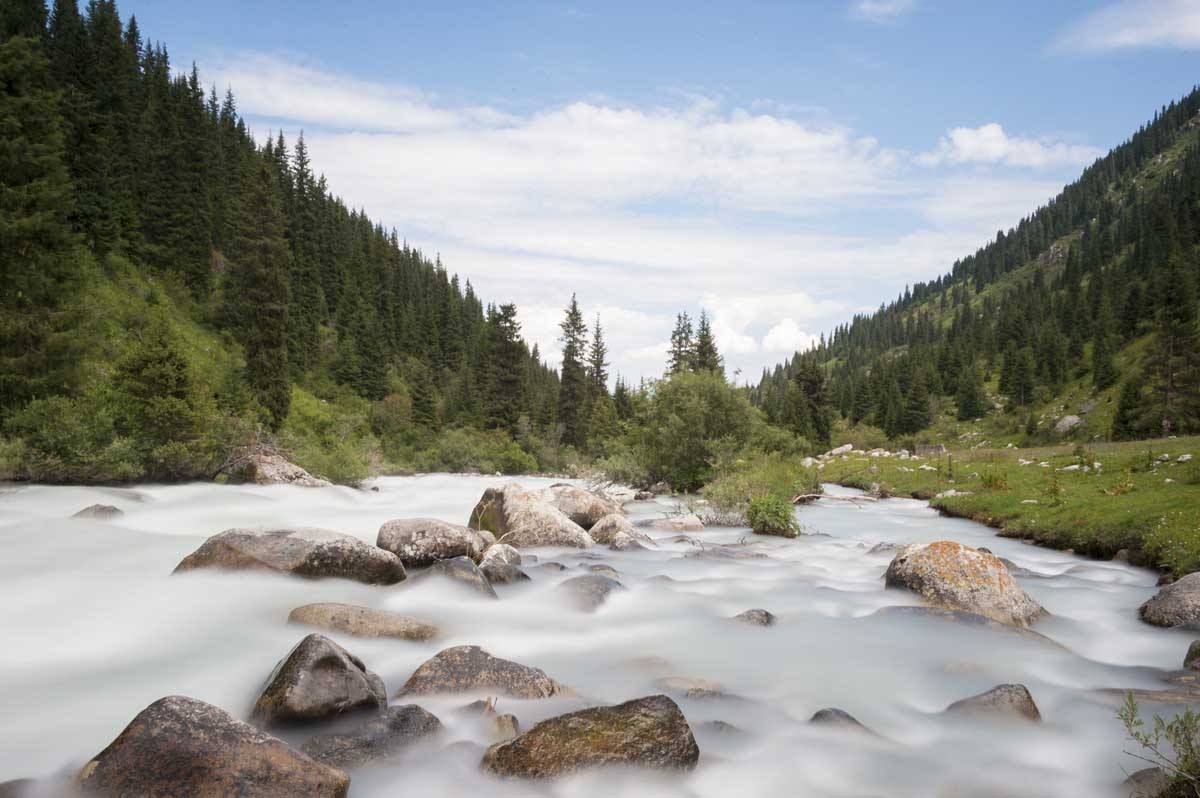
One of our best purchases ever was a refillable water bottle – and if you get one with a filter, that’s even better. No one wants to get sick while hiking from contaminated water, but carrying lots of bottled water while you hike is really inconvenient and wasteful – provided you do have a chance to fill your water bottle along the way, naturally!
We tested two kinds of water bottle over the years – the Lifestraw is excellent but pricey, and the Watertogo is cheaper and good quality, but the filter needs to be replaced approximately every two months. However, it still works out a fair bit cheaper than buying lots of bottled water, and it’s certainly more eco-friendly!
Just one last word of warning, don’t forget to be aware of your water consumption back home, not just when you hike!
5) Be Aware of Your Limits
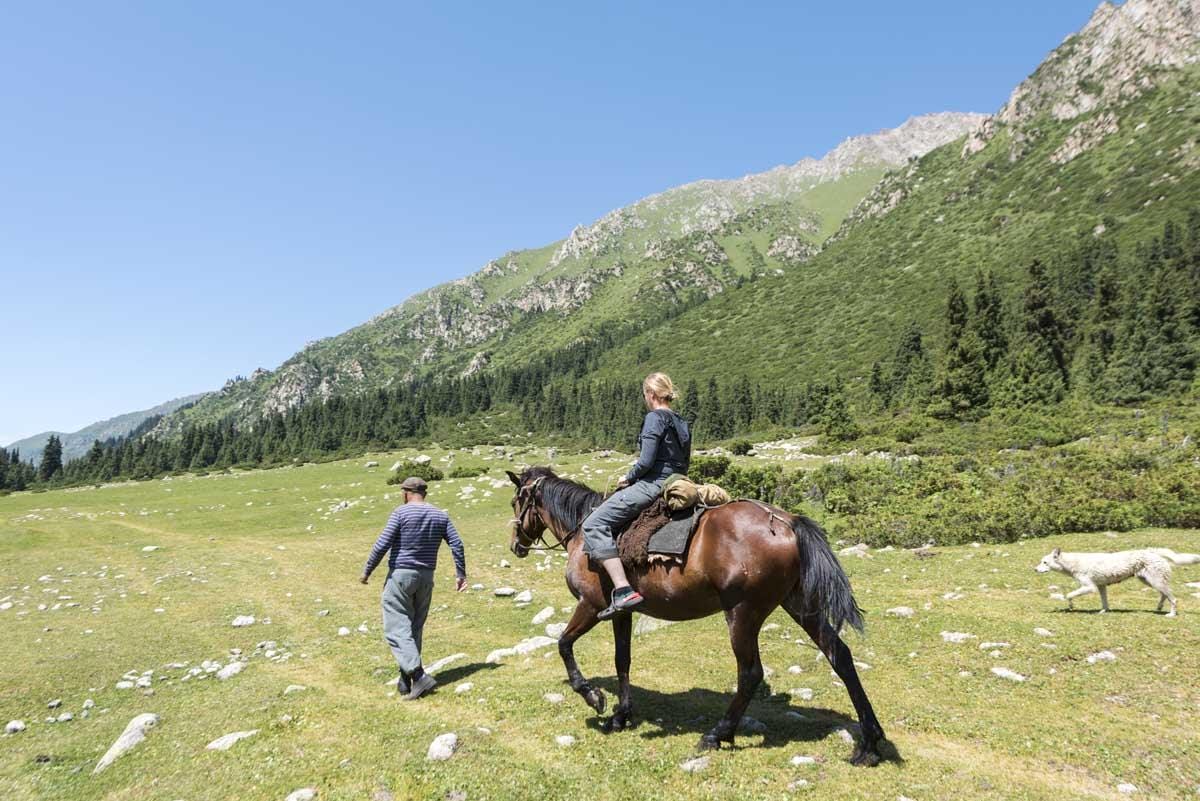
Hiking is truly an activity for everyone – most of the times, there are ‘soft’ options for first timers. If you’ve never hiked before, we recommend starting with something easy – something like a half-day outing, to see how you feel along the trail.
Believe it or not, I never hiked until the age of 25. My very first hike was in Peru, a day-long adventure in the vicinity of Colca Canyon, just a few days before starting the Inca Trail. The one day hike I did before the gruelling Inca Trail helped me test my endurance and become aware of my limits. For instance, I realised I’m not a fast hiker but my stamina level is pretty good, I warm up quickly while I hike, and I hate carrying excessive weight – which helps with my packing!
I have often see unprepared people while hiking. People walking through the snow in canvas shoes, setting off for a one day hike with a 20 kg pack, or choosing a high-altitude multi-day hike as a first ever outing. Make sure you understand what your limits are, and what you’re getting yourself into before starting your hike – you really don’t want to get stuck and call emergency services, which can be hugely expensive.
6) Hire a Local Guide
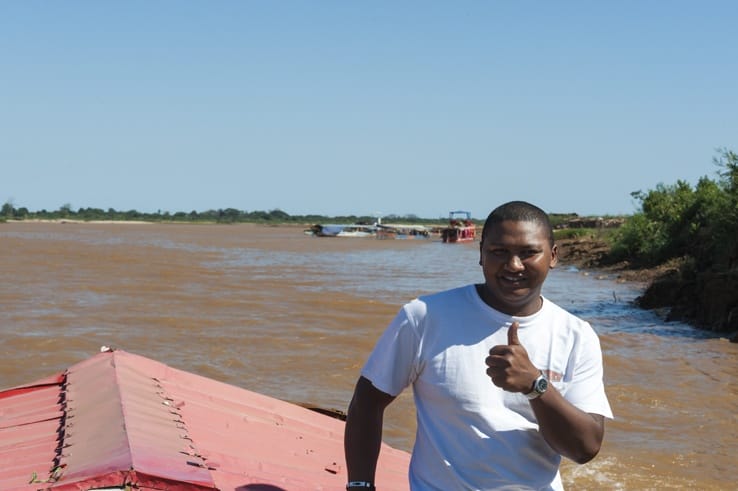
If you’re hiking in a place you don’t know at all, please consider hiring a local guide. Not only will you support the local economy, you’ll also dramatically decrease the chances of getting lost and having incidents. And if something did happen, you’ll be sure that someone will be there to help you out.
Many years ago, we got lost while hiking Taman Negara in Malaysia. We were lost almost for an entire day and a night – then we miraculously found a hut where we spent the night and we were able to retrace our steps back to our camp. We had decided not to hire a guide to save about €20 – and ended up having one of the most terrifying experiences of our life!
Not to mention that a local guide will definitely add to your hiking experience, sharing tips and stories about local customs, nature and wildlife.
7) Respect Wildlife
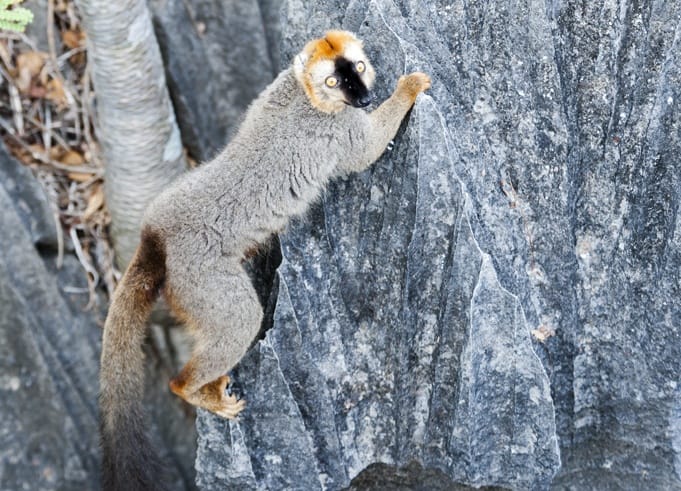
If you’re an animal lover like me, the urge to approach cute, furry critters may be hard to resist – but please, try not to touch or get too close to animals you see along the trail. At the very least, you’ll scare them and they’ll run away – which defeats the purpose of getting close in the first place. However, they may become aggressive and end up attacking you – and if you get bitten, getting rabies treatment in remote places can be a real ordeal.
Also, please do remember to secure your food in tight containers if you’re spending the night camping in the wild, as it may draw wild animals to you – which, again, may have unpleasant consequences. Remember that wildlife is not supposed to eat ‘human’ food – it may be harmful to their health, and it’s never good for wild animals to rely on humans as a source of food.
Pin it for later?
